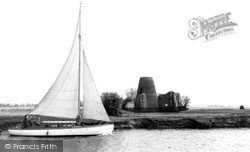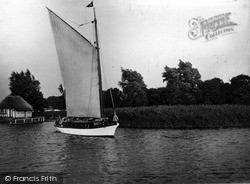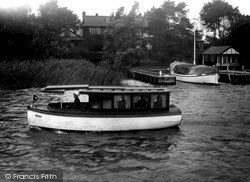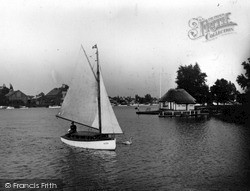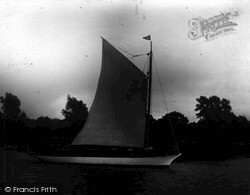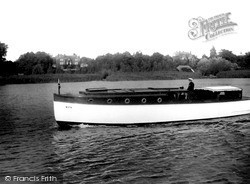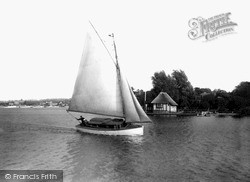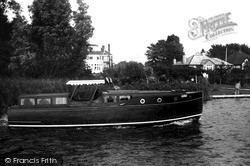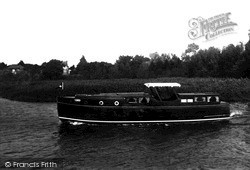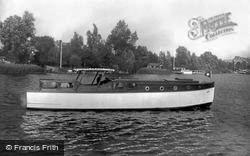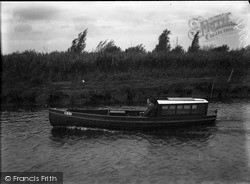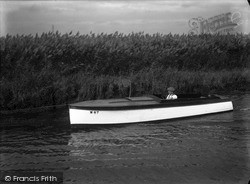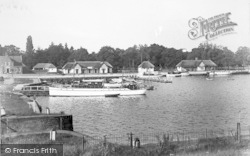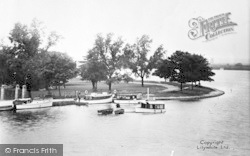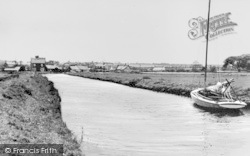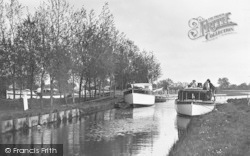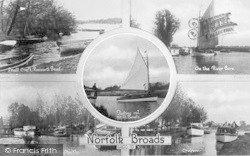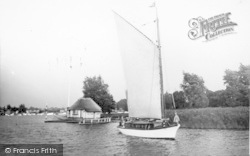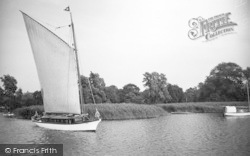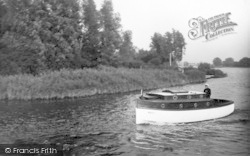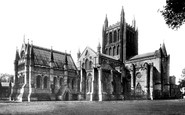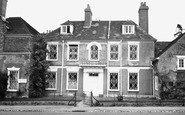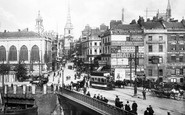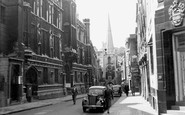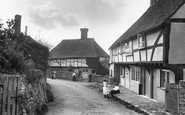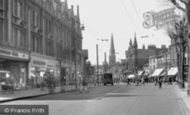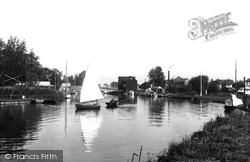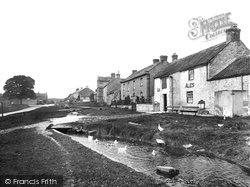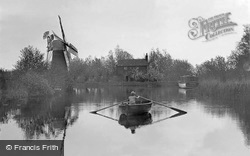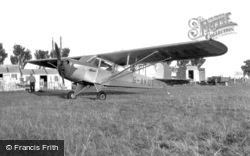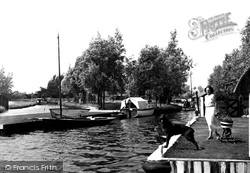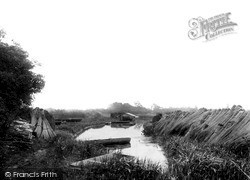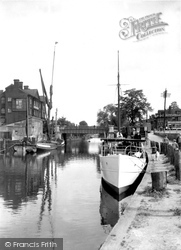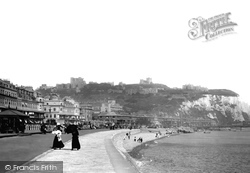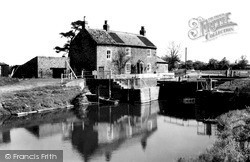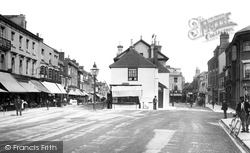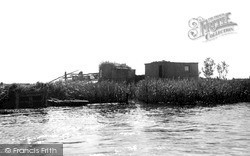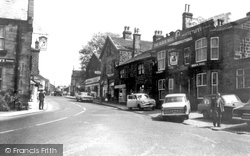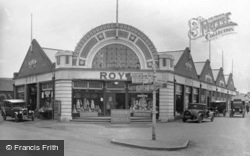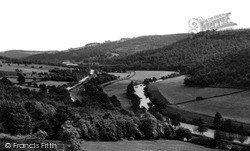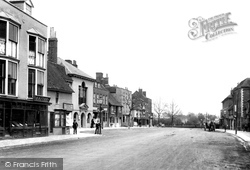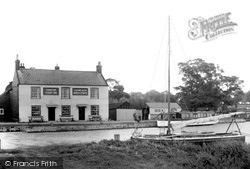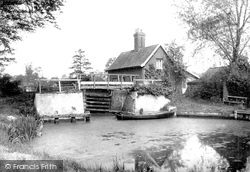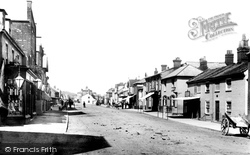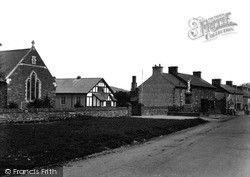Places
2 places found.
Those places high-lighted have photos. All locations may have maps, books and memories.
Photos
222 photos found. Showing results 21 to 40.
Maps
9 maps found.
Books
2 books found. Showing results 25 to 2.
Memories
463 memories found. Showing results 11 to 20.
My Memories Of Salford
I was born in the upstairs back room of my maternal Gran's house at 20 John Street, Pendleton. I was told there was an air raid going on at the time. My first school was John Street where there was a play ground on the roof, ...Read more
A memory of Salford in 1951 by
An Unappreciated History
When you grow up in an ancient city such as Hereford and have really no other frame of reference you don't fully grasp the enormity of the depth of history that buildings such as Hereford Cathedral embodied. The Romans ...Read more
A memory of Hereford in 1957 by
Just Down The Road From Us
Our family lived in the village of West Horsley all of my life, I was born in 51, my sister in 49 and my youngest sister 56. We used to bike down to Ripley and Ockham. I went to school at Sir Walter Raleigh, and Howard ...Read more
A memory of Ripley in 1960 by
Shandon Rhu School
I came across this by chance - I was at school with you, Fraser. I remember coming to an amazing birthday party at your house where your mum had put on an incredible spread, including a plate of Kit Kats which seemed like such a ...Read more
A memory of Shandon by
Happy Times In Maldon
My family and I moved from London in 1955 to Maldon, following a visit the year before with our Sunday School outing, and we moved near to the Prom. We had such happy times living there and as children my friends and I used ...Read more
A memory of Maldon in 1955 by
Monton Eccles
I was born in Monton, lived in Monton during my childhood and moved to Eccles. I went to Eccles Parish School which at the time was run by nuns. They taught us pretty well and watched over us even when we washed our hands, and if ...Read more
A memory of Eccles in 1973 by
Bombing Raids In 1940
Bristol's premier shopping centre was turned into a wasteland of burned out buildings after major bombing raids in 1940, during the Second World War. Bridge Street Summary Bridge Street ran from High Street, rising up a ...Read more
A memory of Bristol by
St John's Gate Broad Street
St John's Gate in Broad Street in Bristol is the only surviving medieval city gateway, at one one time there were seven gates into the old city. Fortified gateways pierced the town wall at intervals. St John's Gateway, ...Read more
A memory of Bristol by
The Old Bakery
The building in the distance is the old bakery. When I was a child/teenager (in the 1960s) my grandparents (Bert and Annie Hurd) lived in a cottage just behind where this picture was taken, and whenever we visited them we would go ...Read more
A memory of Byworth by
Ealing 1962 Onwards
I moved to Windsor Road in Ealing in 1962 when I was 11. I remember the Grove with fond memories. All the shops! The tailor's shop and the barbers. The sweet shop which always had a bowl of water for the dogs outside in the ...Read more
A memory of Ealing in 1962
Captions
458 captions found. Showing results 25 to 48.
Wroxham is at the western gateway to the Broads, and profited greatly from the late 19th-century boom in 'messing about in boats'.
North of Leyburn is the manorial village of Bellerby. Here the stream runs through the broad green in the centre. Around it are farm cottages, and in the middle distance stands the Old Hall.
Teignmouth is the second-oldest seaside resort in Devon; it has attracted visitors from the middle of the 18th century.
Teignmouth is the second-oldest seaside resort in Devon; it has attracted visitors from the middle of the 18th century.
This placid scene depicts the Broads as every water traveller would wish to experience them.
A short flight in this light aircraft, even just a few hundred feet up, would give the sightseeing holidaymaker a marvellous view of both the coastline and the Broads inland.
The neatly-tended garden beside one of the thatched boathouses provides a vantage point to watch boats on the broad. Note the old tyres protecting the corner of the staithe.
The growing of reeds provides one of the principal industries of the broads area. Note the shallow boats which are necessary to reach the reed beds.
A sailing barge, once a common sight on the Broads and Norfolk rivers, is moored opposite the pleasure boats below the yacht station. One of these is a yacht, the other a river trip launch.
Here we have a magnificent view of the broad sweep of the breezy seafront at Dover, with the castle overshadowing the town from four hundred feet above, and the Roman Pharos clearly visible beside the
Linton-on-Ouse is situated north-west of York in the broad Vale of York.
The broad High Street, once the site of the market established under a charter from Edward I, was, at the turn of the last century, still very much a rendezvous for the cattle and sheep farmers of the
Eels used to be commonly found in the Broads rivers, but there is now only one hut remaining at Kandel Dyke above Potter Heigham. Notice the nets to the left of the hut.
Instead of horses and carts, cars now clog the pavement outside the Black Bull. Note how the dark ashlar is picked out by severe white mortaring.
Arnold Roy spotted the need for provisioning the Broads tourist industry early, and his story is a classic errand boy to shopping magnate story.
The broad valley of the Derwent near Whatstandwell opens out between well-wooded sides, as we can see in this picture.
Here we have a magnificent view of the broad sweep of the breezy seafront at Dover, with the castle overshadowing the town from four hundred feet above, and the Roman Pharos clearly visible beside the
Across the broad expanse of the High Street is the portico of the Town Hall, which was rebuilt in 1790.
Many of the inns along the broads contain the word 'Ferry', commemorating long-gone crossing points. The ferries were often run by the innkeepers themselves, who benefited from the extra trade.
Coltishall was a prosperous town in the 18th and 19th centuries, when trade was carried by river rather than the road.
The broad High Street is mainly Victorian, peppered with Georgian buildings.
A sailing barge, once a common sight on the Broads and Norfolk rivers, is moored opposite the pleasure boats below the yacht station. One of these is a yacht, the other a river trip launch.
Wroxham is at the western gateway to the Broads, and profited greatly from the late 19th-century boom in 'messing about in boats'.
Here we have a view of the broad main street, with St David's Church and the church hall on the left. In front of them stands the fine war memorial.
Places (2)
Photos (222)
Memories (463)
Books (2)
Maps (9)


